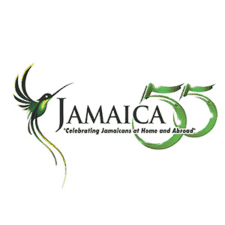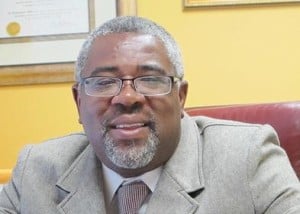CARICOM Youth Commissioners challenged to advocate for CSME
GREATER GEORGETOWN, Guyana – President of the Republic of Suriname His Excellency Runaaldo R Venetiaan has charged youth commissioners to be consistent in their advocacy on the ideals of the CARICOM Single Market and Economy (CSME), the flagship of the Caribbean Community (CARICOM).
Delivering the keynote address at the ceremony to launch the CARICOM Commission on Youth Development on Monday, March 5, 2007 at the Hotel Krasnapolsky in Suriname, Dr Venetiaan acknowledged the strides that the Community had made in consolidating and deepening the process of regional integration and pointed to the need for greater involvement of the Youth to advance the process.
The President, who is also the Lead Head of Government in CARICOM for Youth Affairs, Gender, Culture and Sport, commended the youth for their involvement in the fight against HIV and AIDS through the Youth Ambassador and Mini Grant programs (MGP) and challenged the Commission to be relentless in its focus on HIV and AIDS, noting also that the youth are the most vulnerable to this pandemic.
Enumerating several cross-cutting issues such as male under-achievement, drugs, crime and violence; teenage pregnancy, culture and the environment that must be given priority in the work of the Commission, President Venetiaan lamented that not much had been done in the area of the environment. He challenged the Commission to “help redefine this area of concentration,” as well as to “broaden the concerns to deal with wider issue of sustainable development for youth.”
“We need the Commission to provide the community with the stark reality of the burdens of these risks and the social and economic options for pursuing behavior change,” he declared.
President Venetiaan reiterated the need for the Commission to focus on the economic, social and environmental factors that are necessary to sustain youth development and urged the Commission to connect sustainable development with the achievement of the Millennium Development Goals (MDGs) which deal with issues such as early childhood care and development, access to education, health services, drinking water, employment and participation in the decision making processes.
“The …Commission … must help to ensure a place for our youth as meaningful citizens of the Caribbean, capable of functioning effectively in this new global order,” the President of the Republic of Suriname concluded.
In her remarks, CARICOM Deputy Secretary General, Her Excellency Ambassador Lolita Applewhaite, endorsed the call for the youth agenda to be given priority in the Community and asserted that governments needed to increase their investment in personal, social and economic development for the realization of the goals of the CSME.
“There is no better starting point for ingraining regional values than with the youth who must be imbued with the passion, the beliefs and the creativity to grasp and contribute to the opportunities which the CSME makes available,” the Deputy Secretary General posited.
She acknowledged that while the Community at all levels had identified young people as a resource for development and had pledged to provide spaces and opportunities for capacity building, growth and development, “the promise had not been matched by actual delivery of resources necessary to make youth participation more meaningful.”
Ambassador Applewhaite declared that “more was required to create a supportive environment for effective youth participation in development and integration processes and for the establishment of firm linkages in the child-youth-adult continuum.”
Outlining her expectations of the Commission, Ambassador Applewhaite noted that the Commission should, among other things, provide recommendations to strengthen national youth organizations and enhance the capabilities of youth leadership and at the same time identify ways to reduce the risks faced by youth, especially those who were socially marginalized.
She further charged the Commission to explore in its inaugural meeting several issues including cyber crime, migration, human trafficking, substance abuse and the declining access to education, but cautioned the Commission not to dilute its focus, while wrestling with the factors that would present a challenge to its work.
Director of the Commonwealth Youth Program Caribbean Centre, Mr. Charles Henry, who also addressed the ceremony, applauded the decision of the July 2006 Conference of Heads of Government to establish the Commission and urged all youth development stakeholders to play their role in creating an enabling environment so that the Commission might become an effective tool for fundamental transformation.
“The Commission cannot and must not be treated as yet another public relations stunt… the Caribbean society cannot afford for it to be another gesture of intent or a feel good tactic,” he said.
In her reply, Co-chair of the Commission, Ms Yldiz Beighle accepted the challenge of the speakers, noting that “to whom much is given, much is expected.” She made the commitment to ensure that there would be maximum youth participation in the Commission’s work and reminded her team that “the process was just as important as the product.”
The CARICOM Commission on Youth Development has its genesis in the 27th Meeting of the Conference of Heads of Government held in St Kitts/ Nevis in July 2006.
The Commission is required to “provide a full scale analysis of the challenges and opportunities for youth in the CSME and to make recommendations on how to improve their well-being and empowerment.”
Twelve commissioners, including two-Co-Chairs were installed – two in absentia – to carry out this mandate. They are Co-Chairs, Prof. Barry Chevannes and Yldiz Beighle; youth Commissioners Ryssa Brathwaite, Terriann Gilbert–Roberts, Tamian Beckford, Kyle de Freitas, Melvin Bouva and Marvin Edgar; technocrats Dr Brada Brathwaite, Lincoln Williams and Annette Tjon Sie Fat.
The Commission will be supported by a three-member Secretariat led by CARICOM Assistant Secretary General, Human and Social Development, Dr Edward Greene. The other members are the CARICOM Secretariat’s Deputy Program Manager, Community Development, Dr Heather Johnson, and former Youth Ambassador of Trinidad and Tobago, Mr. Sherwin Bridgewater.


